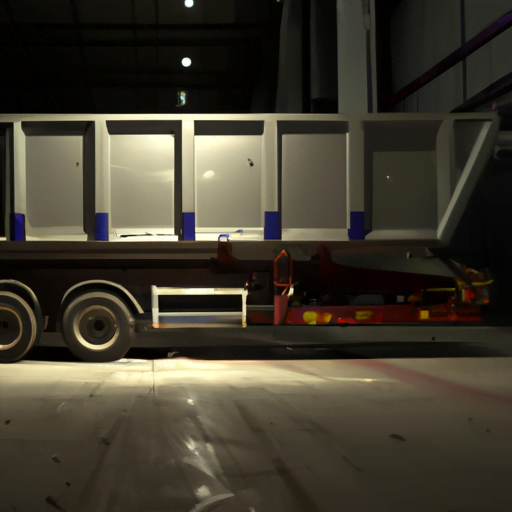-
Table of Contents
How to Choose the Right Dump Trailer for Your Needs

Whether you’re a contractor, landscaper, or simply a DIY enthusiast, a dump trailer can be an invaluable tool for hauling and dumping materials. However, with so many options available on the market, it can be challenging to determine which dump trailer is best suited for your needs. In this article, we’ll explore the key factors to consider when choosing the right dump trailer, as well as provide some helpful tips and examples to guide you in your decision-making process.
Understanding Your Needs
Before diving into the specifics of dump trailers, it’s essential to first assess your needs and requirements. Consider the following questions:
- What types of materials will you be hauling and dumping?
- How much weight do you anticipate needing to transport?
- How often will you be using the dump trailer?
- What is your budget?
By answering these questions, you’ll have a better understanding of the features and specifications that are most important to you, making it easier to narrow down your options.
Key Factors to Consider
Now that you have a clear understanding of your needs, let’s explore the key factors to consider when choosing the right dump trailer:
1. Size and Capacity
One of the most critical factors to consider is the size and capacity of the dump trailer. Dump trailers come in various sizes, typically ranging from 5×8 feet to 8×20 feet. The size you choose will largely depend on the types of materials you’ll be hauling and the weight capacity you require.
For example, if you’re primarily hauling small loads of yard waste or debris, a smaller dump trailer may suffice. However, if you’re transporting heavy materials such as gravel, dirt, or construction debris, you’ll likely need a larger trailer with a higher weight capacity.
2. Construction and Material
The construction and material of the dump trailer are also essential factors to consider, as they can significantly impact the trailer’s durability and longevity. Common materials used in dump trailer construction include steel and aluminum.
Steel dump trailers are typically more affordable and can handle heavier loads, making them a popular choice for commercial applications. However, they are also more susceptible to rust and corrosion, which can shorten their lifespan.
Aluminum dump trailers, on the other hand, are more lightweight and resistant to rust and corrosion. This makes them a great option for those who prioritize longevity and ease of towing. However, they tend to be more expensive and may not be suitable for extremely heavy loads.
3. Hydraulic System
The hydraulic system is a crucial component of any dump trailer, as it’s responsible for raising and lowering the trailer bed. There are two main types of hydraulic systems to choose from: single-ram and dual-ram (or scissor) systems.
Single-ram systems are more common in smaller dump trailers and are generally more affordable. However, they may not provide the same level of stability and lifting power as dual-ram systems, which are typically found in larger, commercial-grade trailers.
When evaluating the hydraulic system, also consider the trailer’s pump and battery. A higher-quality pump will provide faster and more efficient lifting, while a larger battery will ensure longer run times between charges.
4. Towing Vehicle Compatibility
It’s essential to ensure that your towing vehicle is compatible with the dump trailer you choose. This means considering the towing vehicle’s hitch type, towing capacity, and any additional equipment that may be required (such as brake controllers).
Always consult your vehicle’s owner’s manual for specific towing capacity information and consult with the dump trailer manufacturer to ensure compatibility.
5. Additional Features and Accessories
Lastly, consider any additional features and accessories that may be important to you. Some popular options include:
- Ramps for loading equipment
- Tarp systems for covering loads
- Toolboxes for storing equipment and supplies
- Stabilizer jacks for added stability when loading and unloading
While these features may not be essential for every user, they can provide added convenience and functionality, depending on your specific needs.
Conclusion
Choosing the right dump trailer for your needs doesn’t have to be a daunting task. By understanding your requirements and considering factors such as size, capacity, construction material, hydraulic system, towing vehicle compatibility, and additional features, you can make an informed decision that best suits your needs and budget.
Remember to consult with reputable manufacturers and dealers, read reviews from other users, and don’t be afraid to ask questions. With the right research and preparation, you’ll be well on your way to finding the perfect dump trailer for your needs.

